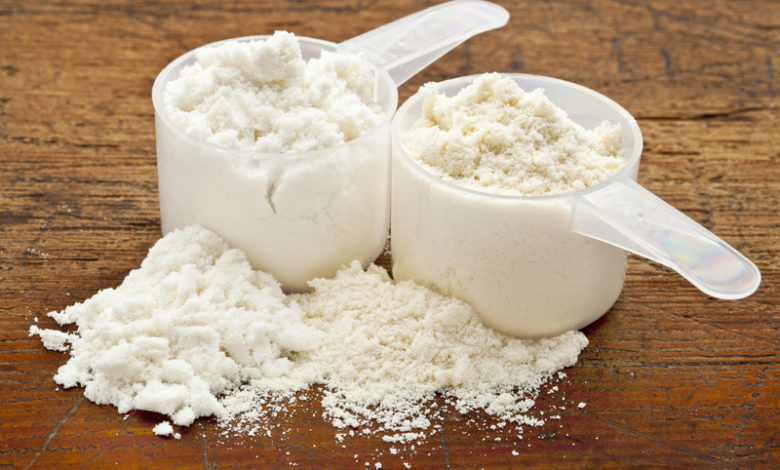Can Whey Protein Help You Gain Weight?
Whey protein is not only a staple for athletes and fitness enthusiasts looking to enhance muscle recovery and performance but also an effective supplement for those aiming to gain weight.
This article explores how incorporating whey protein into your diet can help you increase muscle mass and overall body weight, particularly when combined with the right training and dietary strategies.
| Quick Summary |
| Yes, whey protein can help gain weight by providing extra calories and promoting muscle growth when combined with strength training. |
What is Whey Protein?
Whey protein is a high-quality protein derived from milk during the cheese-making process. It's highly digestible and contains all nine essential amino acids necessary for human health, making it a complete protein source.
It's particularly rich in branched-chain amino acids (BCAAs), which play a crucial role in building and repairing muscles.
How Whey Protein Contributes to Weight Gain
Muscle Growth and Repair
Whey protein promotes muscle protein synthesis, the process by which the body builds new muscle tissue. When consumed post-workout, it can help repair the micro-tears in muscle fibers that occur during exercise, leading to muscle growth over time.
Caloric Surplus
To gain weight, you must consume more calories than you burn in a day. Whey protein is an efficient way to increase your daily calorie intake. A single scoop can add over 120 calories to your diet, which can help in creating the caloric surplus needed for weight gain.
Reduced Muscle Breakdown
During periods of intense training or under-eating, the body might break down muscle tissue for energy. Whey protein helps prevent this muscle breakdown, preserving muscle mass and contributing to a net positive muscle gain.
Optimal Ways to Use Whey Protein for Weight Gain
Timing
Consuming whey protein immediately after workouts maximizes muscle repair and growth. However, including it as a snack between meals can also help maintain a steady supply of protein and calories throughout the day, aiding in weight gain.
Mixing with Other Ingredients
Enhance your whey protein shakes by adding calorie-dense ingredients like peanut butter, oats, bananas, or honey. This not only increases the caloric content but also improves the shake’s taste and nutritional value.
Consistency
Consistency is key in any supplement regimen. Regularly including whey protein as part of a balanced diet can yield noticeable gains in weight and muscle over time.
Potential Considerations
While whey protein is generally safe for most people, it can cause gastrointestinal discomfort, allergies, or acne in sensitive individuals.
It's also important to ensure that most of your protein comes from whole food sources to benefit from a variety of nutrients not present in whey supplements.
Conclusion
Whey protein can indeed be a powerful tool for gaining weight, particularly when targeting muscle mass increases. It provides both a high-quality protein source and an easy way to consume additional calories.
However, it should be used as part of a broader dietary strategy that includes a variety of nutrient-rich foods to ensure overall health and effective weight gain.
Remember, as with any dietary change, it’s wise to consult with a healthcare provider or a nutrition expert to tailor the approach to your individual needs and health conditions.


